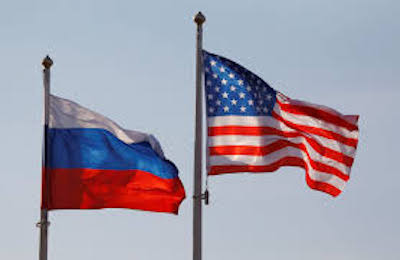‘Westinghouse, chemical weapons watchdog OPCW and FIFA were targeted’
WASHINGTON (TIP): The U.S. Justice Department on Thursday, October 4, indicted seven agents of Russia’s GRU military intelligence agency as part of a joint crackdown with allies Britain and the Netherlands on a series of major hacking plots attributed to Moscow.
The U.S. indictments were announced as Dutch security services said they had thwarted a Russian attack on the global chemical weapons watchdog, the OPCW, and after Britain blamed the GRU for plots that notably targeted the U.S. Democratic Party and world sport’s anti-doping authority
John Demers, U.S. Assistant Attorney General for National Security, confirmed that known attack targets included the OPCW, sports bodies including FIFA and the World Anti-doping Agency (WADA), as well as U.S. nuclear energy company Westinghouse.
“Nations like Russia and others that engage in malicious and norm-shattering cyber and influence activities should understand the continuing and steadfast resolve of the United States and its allies to prevent, disrupt and deter such unaccountable conduct,” Mr. Demers told a news conference.
“The defendants in this case should know that justice is very patient, its reach is long, and its memory is even longer,” he said.
The indictments include charges of money laundering, using virtual currencies like bitcoin, wire fraud and identify theft.
Mr. Demers said the operations “involved sophisticated, persistent and unauthorized access into the victims’ computer networks for the purpose of stealing private or otherwise sensitive information.”
While the latest case did not arise from Robert Mueller’s probe into Russian election meddling, it overlaps with it — including the identity of the individuals charged, Mr. Demers said.
In July, Mr. Mueller indicted 12 GRU officers, accusing them of interfering in the U.S. polls in 2016.
Canada confirmed on Thursday it believes itself to have been targeted by Russian cyber attacks, citing breaches at its center for ethics in sports and at the Montreal-based WADA.
Cyber aggressor
“The government of Canada assesses with high confidence that the Russian military’s intelligence arm, the GRU, was responsible” for these cyber attacks, the foreign ministry said in a statement.
Meanwhile, Britain’s National Cyber Security Centre (NCSC) termed Russia’s GRU a pernicious cyber aggressor.
GRU, Britain said, was almost certainly behind the BadRabbit and World Anti-Doping Agency attacks of 2017, the hack of the Democratic National Committee (DNC) in 2016 and the theft of emails from a U.K.-based TV station in 2015.
“The GRUs actions are reckless and indiscriminate: they try to undermine and interfere in elections in other countries,” said British Foreign Secretary Jeremy Hunt.
Though less well known than the Soviet Union’s once mighty KGB, Russia’s military intelligence service played a major role in some of the biggest events of the past century, from the Cuban missile crisis to the annexation of Crimea.
Though commonly known by the acronym GRU, which stands for the Main Intelligence Directorate, its name was formally changed in 2010 to the Main Directorate of the General Staff (or just GU). Its old acronym — GRU —is still more widely used.
